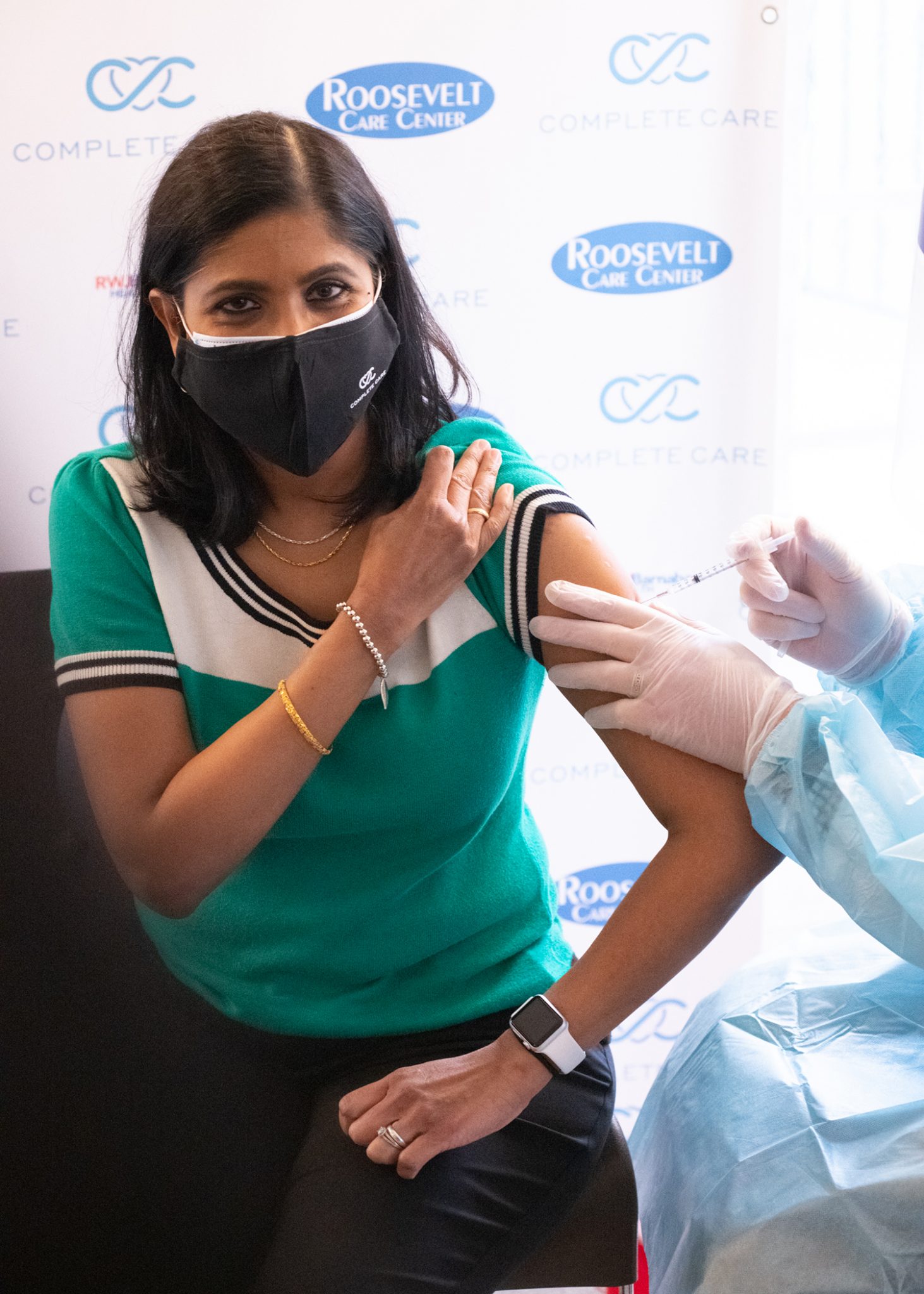Montgomery Township Deputy Health Officer Devangi Patel recently warned the Pennington Council and community about COVID-19 vaccine hesitancy.
During a Pennington Council meeting on April 5, Patel spotlighted the need to start dealing with the segments of the population that are vaccine hesitant. She stated that even though there is a short supply of vaccine, many people still need to be vaccinated.
“Building trust with those communities and educating them and giving them factual information about vaccines. these are calls we come across daily at the health department,” Patel said. “People are very concerned and very fearful. It is also concerning that the sources of information that they trust and believe in are not trustworthy. We encourage people to call us at the health department if they have any questions regarding vaccines.”
According to information gathered last month by the nonprofit Kaiser Family Foundation from its national COVID-19 Vaccine Monitor in the category of wait-and-see, 25% of 18-29-year-olds are wait-and-see, 18% between age 30-49, 17% with 50-64 year-olds, and 7% with 65 and older.
Gov. Phil Murphy on April 5 announced that all individuals age 16 and older will be eligible to receive a COVID-19 vaccination on April 19.
According to state officials, the state vaccination roll out has administered 4.7 million doses of vaccine to eligible adults, essential frontline workers, educators, and high-risk groups.
About 1.79 million adults are fully vaccinated.
Patel also warned against pandemic fatigue and coronavirus variants.
“We are seeing the variants threaten a third wave, specifically the UK variant. Many of the cases we are seeing now are the variant cases. The variant cases are more common amongst people that are unvaccinated and not practicing public health precautions,” she said. “Some of the things we are dealing with are pandemic fatigue. We have been through this for over a year now and we are seeing the results of people being frustrated and tired of being in the environment of lockdowns and continuous use public health precaution such as masking and social distancing.”
As part of how to heal from the pandemic, Patel suggested focusing on mental health with different programs and activities that stakeholders in the community continue to provide.
“Mental health was a huge concern pre-COVID-19. Most of our meetings and conversations with community stakeholders revolved around mental health, especially youth mental health, and it has only become more prominent,” she said. “We are also going to have to focus on our economy – keeping our workers safe, encouraging employers to be aware of their requirements and public health guidance. Once of the things we learned is that a lot of employers are not aware of what they need to do once they have identified someone in their place of employment that has been in close contact or is a positive case for COVID-19.”

